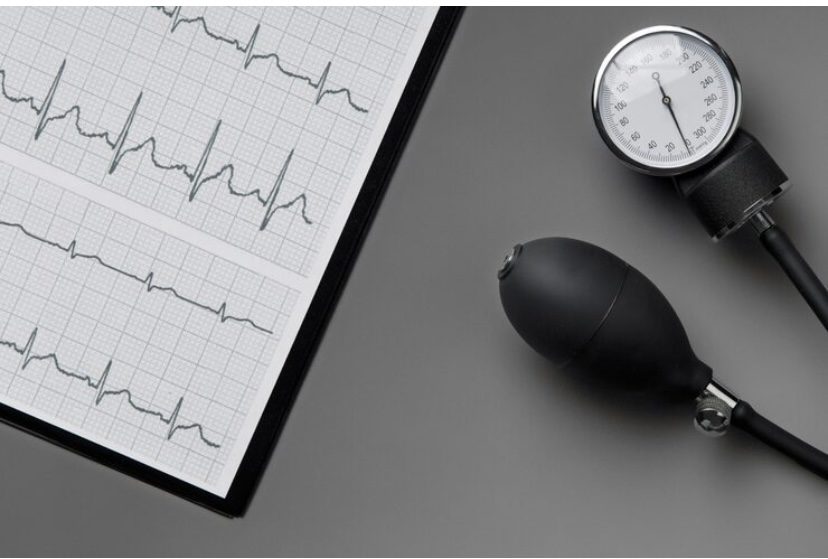This content is for informational and educational purposes only. Always consult a qualified healthcare provider.
Last Updated on November 19, 2025 by Grace Oluchi
Vital Signs: What They Tell You About Your Health
Vital signs give you quick and reliable clues about how your body is working. They help you understand what’s normal for you, spot changes early, and know when to seek help. Doctors rely on them because they show what’s happening inside your body before symptoms appear.
📋 Table of Contents
What Are Vital Signs?
Vital signs are basic measurements that show how well your body is functioning. They include:
- Body temperature
- Heart rate (pulse)
- Breathing rate
- Blood pressure
- Blood oxygen level
Each one tells you something different about your health.
Types of Vital Signs
1. Body Temperature
Your body temperature shows how hot or cold your body is on the inside. You can check it:
- With a thermometer
- In your mouth
- Under your arm
- Rectally (for babies or hospital use)
A normal temperature is around 98.6°F (37°C), but it can change during the day based on activity, hormones, or the weather.
A higher temperature (fever) may mean:
- An infection
- Inflammation
A very low temperature can be risky, especially in cold environments.
Helpful Medspurs link:
General Health Basics
https://medspurs.com/general-health/general-health-basics/
2. Pulse (Heart Rate)
Your heart rate is the number of times your heart beats per minute. You can feel your pulse on your:
- Wrist
- Neck
A normal resting heart rate for adults is 60 to 100 beats per minute.
Things that can raise or lower your heart rate include:
- Exercise
- Anxiety or stress
- Sleep
- Strong emotions
- Deep breathing
- Temperature changes
If your heart rate is always very high (tachycardia) or too low (bradycardia), it may signal an underlying issue.
3. Breathing Rate
Your breathing rate is how many breaths you take per minute. A healthy rate for adults is 12 to 20 breaths per minute.
It can rise during:
- Exercise
- Climbing stairs
- Dancing
- Swimming
- Stress or anxiety
Unusual changes in your breathing could indicate lung issues, heart conditions, or stress-related problems.
4. Blood Pressure
Blood pressure measures the force of blood pushing against your artery walls.
It has two numbers:
- Systolic – pressure when your heart beats
- Diastolic – pressure when your heart rests
A healthy reading is generally below 120/80 mm Hg.
High blood pressure increases the risk of heart disease and stroke, while low blood pressure can lead to dizziness or fainting.
Helpful Medspurs link:
Preventive Health Tips
https://medspurs.com/general-health/preventive-health-tips/
5. Blood Oxygen Level
This measures how much oxygen is circulating in your blood. You can check it using a pulse oximeter, usually clipped to your finger.
A healthy blood oxygen level is typically 95 to 100 percent.
Low oxygen levels may point to:
- Lung problems
- Issues with circulation
- Breathing disorders
- Asthma flare-ups
- High-altitude effects
If your levels stay low, you should reach out to a doctor.
Why Vital Signs Matter
Vital signs are important because they help you:
Catch Health Issues Early
They give your doctor useful information that helps diagnose conditions, even before symptoms start.
Stay Aware of Changes
Tracking your vital signs helps you notice patterns, improvements, or sudden changes.
Know Your Baseline
Everyone has slightly different “normal” ranges. Knowing yours helps you spot when something feels off.
Prevent Serious Problems
Early detection leads to better outcomes and may stop minor issues from turning into emergencies.
Helpful Medspurs link:
Health Checkups and Screening Basics
https://medspurs.com/general-health/health-checkups-and-screening-basics/
References and Studies (Updated 2024–2025)
- World Health Organization (2025). Vital Signs Monitoring Overview.
https://www.who.int/tools/gho - American Heart Association (2025). Understanding Blood Pressure Readings.
https://www.heart.org - Centers for Disease Control and Prevention (2024–2025). How Vital Signs Reflect Health Status.
https://www.cdc.gov - National Library of Medicine (2024). Blood Oxygen Saturation and Respiratory Health.
https://pubmed.ncbi.nlm.nih.gov

